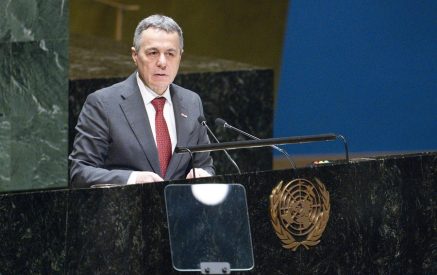WARSAW, 8 October 2021 – Working towards an OSCE region free from capital punishment should be a priority for all OSCE countries, the OSCE Office for Democratic Institutions and Human Rights (ODIHR) said today ahead of the World Day against the Death Penalty on 10 October.
“I very much welcome the decision by both Kazakhstan and the US state of Virginia to abolish the death penalty this year,” said ODIHR Director Matteo Mecacci. “At the same time, more needs to be done both at national and international level to consolidate the positive trends we have seen over the years, by changing public attitudes, depoliticising the death penalty and achieving full abolition across the OSCE area. Strong and responsible political leadership will be essential to ensure that these efforts reach fruition.”
This year’s edition of ODIHR’s Background Paper on the Death Penalty in the OSCE Area focuses on how several OSCE countries have decided to abolish the death penalty in recent years, and identifies factors that influenced the process. It also highlights the crucial role of civil society organisations in moving politicians, criminal justice stakeholders and the wider public towards acceptance of abolition, particularly through debunking common myths around capital punishment.
“My story, and that of many I know, disrupts the too-easy image of a victim’s family member who finds closure in state-sanctioned death,” emphasises Jeanne Bishop, an activist for abolition of the death penalty and family member of a murder victim, and author of the introduction to this year’s report. “It would not bring my loved ones back. It would not honour their lives or what they stood for. It would not give me that thing people often say that murder victims’ families want and need above all: closure.”
Read also
Capital punishment disproportionately affects people who are already vulnerable. Notably, women on death row often come from marginalised backgrounds and are scarred by years of abuse. At the same time, a death sentence causes severe mental and physical suffering not only to the person concerned, but also to their family, family members of the victim, and many other individuals involved in carrying out executions.
There is a growing consensus around the world that the death penalty is a form of punishment that does not serve as a deterrent for the prevention of crimes and that its implementation is cruel, inhuman and degrading. All OSCE countries have committed to exchanging information about the death penalty and keeping its use under review. The vast majority of OSCE states have either completely abolished the death penalty or maintain moratoria on executions as an important step towards abolition.






















































